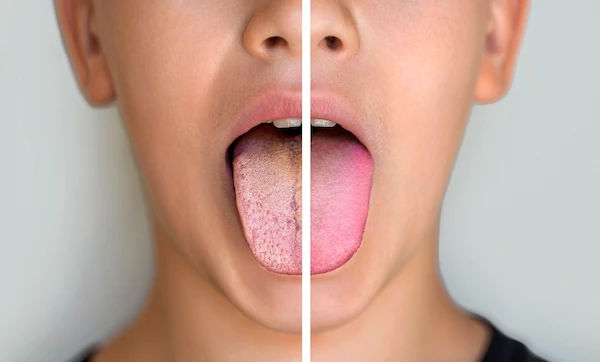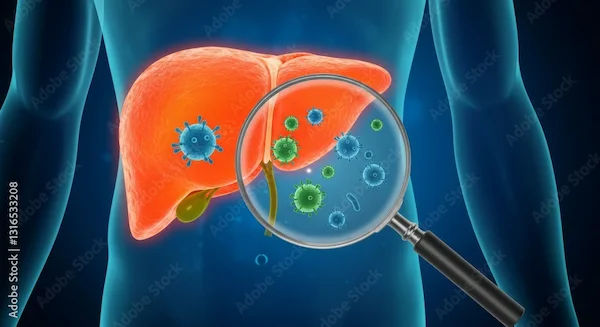What Is Psychotherapy? Understanding the Basics
Understand the basics of psychotherapy, including its purpose, types, and how it helps individuals manage mental health challenges and emotional well-being.

Written by Dr. Mohammed Kamran
Reviewed by Dr. Rohinipriyanka Pondugula MBBS
Last updated on 13th Jan, 2026

Mental health is just as important as physical health, yet many people hesitate to seek help when they're struggling emotionally. Psychotherapy, often called "talk therapy," is a powerful tool that can help individuals understand and manage their emotions, thoughts, and behaviors. If you or someone you know is dealing with stress, anxiety, depression, or other emotional challenges, psychotherapy can be a life-changing resource.
In this article, we’ll explore what psychotherapy is, how it works, the different types available, and how it can benefit you.
What Is Psychotherapy?
Psychotherapy is a treatment method where a trained therapist helps individuals work through emotional, psychological, or behavioral issues. Through structured conversations, the therapist provides a safe and confidential space to explore feelings, identify problems, and develop coping strategies.
Unlike casual talks with friends or family, psychotherapy is a professional process guided by evidence-based techniques. It can be used alone or alongside medications, depending on the individual’s needs.
How Does Psychotherapy Help?
Psychotherapy can assist with a wide range of mental health concerns, including:
Anxiety & Stress: Helps manage excessive worry, panic attacks, or phobias.
Depression: Addresses feelings of sadness, hopelessness, or lack of motivation.
Relationship Issues: Improves communication and conflict resolution.
Trauma & PTSD: Assists in processing traumatic experiences.
Grief & Loss: Supports individuals coping with bereavement.
Addiction & Behavioural Issues: Helps in overcoming unhealthy habits.
Self-Esteem & Personal Growth: Encourages self-awareness and confidence.
Therapy isn’t just for severe mental health conditions—it can also help with everyday stress, life transitions, and personal development.
Different Types of Psychotherapy
There are several approaches to psychotherapy, each suited to different needs. Some common types include:
1. Cognitive Behavioural Therapy (CBT)
Focuses on identifying and changing negative thought patterns.
Effective for anxiety, depression, and phobias.
Teaches practical coping skills.
2. Psychodynamic Therapy
Explores unconscious thoughts and past experiences.
Helps understand deep-rooted emotional conflicts.
Useful for long-standing emotional issues.
3. Humanistic Therapy
Emphasises personal growth and self-acceptance.
Encourages individuals to take responsibility for their happiness.
Includes approaches like client-centred therapy.
4. Dialectical Behaviour Therapy (DBT)
A form of CBT that focuses on emotional regulation.
Helps with borderline personality disorder, self-harm, and intense emotions.
5. Family & Couples Therapy
Addresses relationship conflicts.
Improves communication and problem-solving within families or couples.
Your therapist will recommend the best approach based on your needs.
What to Expect in a Therapy Session?
If you're new to therapy, you might wonder what happens in a session. Here’s a general idea:
1. Initial Assessment: The therapist will ask about your concerns, history, and goals.
2. Open Conversation: You’ll discuss your feelings, thoughts, and experiences in a non-judgmental space.
3. Skill-Building: The therapist may teach coping techniques (e.g., relaxation exercises, journaling).
4. Homework Assignments: Some therapies involve practising skills outside sessions.
5. Progress Tracking: Over time, you’ll review improvements and adjust strategies.
Therapy can be short-term (a few weeks) or long-term (months or years), depending on your needs.
How to Know If You Need Psychotherapy?
You might benefit from therapy if you:
Feel overwhelmed by emotions (sadness, anger, fear).
Struggle with daily tasks due to stress or low motivation.
Experience relationship conflicts frequently.
Have unresolved trauma affecting your life.
Engage in harmful behaviours (substance abuse, self-harm).
Simply want personal growth and self-understanding.
Remember, seeking therapy is a sign of strength, not weakness.
Consult Top Specialists
Tips for Making the Most of Therapy
1. Be Open & Honest: The more you share, the better your therapist can help.
2. Set Realistic Goals: Progress takes time; be patient with yourself.
3. Practice Outside Sessions: Apply coping techniques in daily life.
4. Choose the Right Therapist: Find someone you feel comfortable with.
5. Stay Consistent: Regular sessions yield better results.
How to Find a Therapist?
If you're considering therapy, Apollo 24|7 offers professional mental health support. You can:
Book an online consultation with licensed therapists.
Choose from various therapy approaches based on your needs.
Access support from the comfort of your home via video or chat sessions.
Taking the first step can be daunting, but therapy can lead to meaningful, positive changes in your life.
Conclusion
Psychotherapy is a valuable tool for improving mental well-being. Whether you're dealing with emotional struggles or simply want to understand yourself better, therapy provides guidance, support, and practical strategies for a healthier mind.
If you think therapy could help you, don’t hesitate to reach out. Your mental health matters, and professional support is just a consultation away.
Consult Top Specialists
Consult Top Specialists

Ms. Sridevi
Counselling Psychologist
5 Years • BSC,MSC Clinical Psychology
Bengaluru
Apollo Medical Center, Marathahalli, Bengaluru

Ms Rajashree Navthale
Psychotherapy & Counselling (ASM)
8 Years • MA in Counselling & Psychotherapy, PG Diploma in Counselling & Psychotherapy.
Akola
Connect Counselor, Akola

Miss. Vaishnavi Sankeshwar
Psychologist
5 Years • Msc Clinical Psychology
Bengaluru
Apollo Clinic, JP nagar, Bengaluru

Ms. Monalisa Kha Bhaduri
Psychologist
12 Years • MA Psychology
Kolkata
Ms Monalisa Kha Bhaduri's Clinic, Kolkata
(250+ Patients)

Ms. Gunjan Arya
Psychologist
4 Years • MA Psychology
Delhi
Psych Therapy By Gunjan Arya, Delhi




